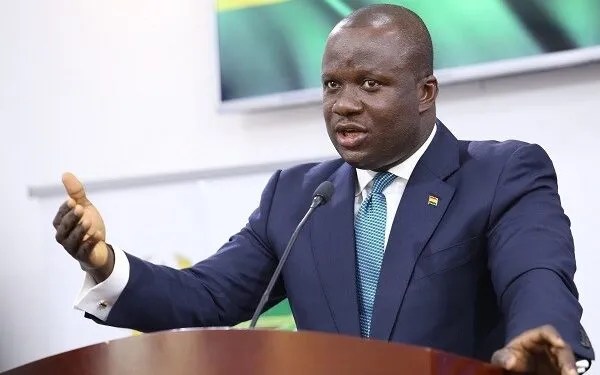The Minority in Parliament has accused the Ministry of Foreign Affairs of misleading Ghanaians about the nature of Ghana’s abstention during a recent vote at the United Nations Human Rights Council (HRC59), describing the Ministry’s explanation as “totally false.”
The Ministry of Foreign Affairs had on Wednesday July 9 clarified the country’s recent vote at the 59th Session of the United Nations Human Rights Council (HRC59), stating that Ghana did not vote on LGBTQI rights, as suggested by sections of the media, but abstained from a resolution on the renewal of the mandate of the Independent Expert on Protection Against Violence and Discrimination Based on Sexual Orientation and Gender Identity (SOGI).
The Ministry emphasized that the issue before the Council was not about support for LGBTQI rights, but whether individuals who identify as LGBTQI should be protected from violence and discrimination.
But Samuel Abdulai Jinapor, Member of Parliament for Damongo and Ranking Member on the Foreign Affairs Committee, in statement on Thursday July 10, rejected the Ministry’s claim that the vote was solely about protecting LGBTQI individuals from violence and discrimination.
“The statement by the Ministry of Foreign Affairs that ‘the question before the Council was whether persons who identify as LGBTQI should be protected against violence and discrimination or not’ is totally false,” Jinapor said.
He clarified that the actual subject of the vote was the renewal of the mandate of the Independent Expert on Sexual Orientation and Gender Identity (IE SOGI) — a role he said includes not just protection but active promotion of LGBTQI rights globally.
“The question before the Council was whether to extend the mandate of the IE SOGI, which had ended, for him to continue performing his functions, which invariably include the promotion of LGBTQ,” Jinapor noted, referencing paragraph 2 of the draft resolution.
He rejected the Ministry’s argument that Ghana abstained from the vote in line with Article 17 of the 1992 Constitution, which prohibits discrimination.
“It cannot also be correct that Ghana abstained from the vote because of Chapter Five of the Constitution. Nothing in Article 17 supports individual choice of sexual orientation or gender identity,” he said.
Jinapor also pointed to Article 12 of the Constitution, which states that rights are subject to the public interest — an important distinction, he argued, given Ghana’s cultural and legislative position on LGBTQI matters.
The Damongo MP further warned that the international definition of “discrimination” includes legal frameworks such as Ghana’s own Promotion of Proper Human Sexual Rights and Ghanaian Family Values Bill, which criminalizes LGBTQI practices. He said it is precisely such laws that the IE SOGI is mandated to oppose.
“In his April 17, 2025 report to the Human Rights Council, the Independent Expert urged that states should end both de jure and de facto criminalization of LGBTQ,” Jinapor stated.
